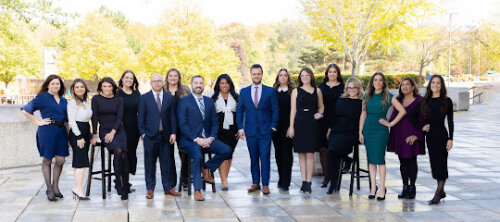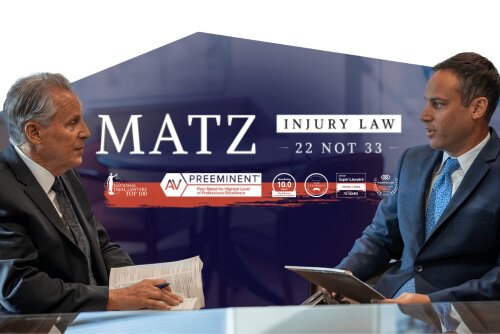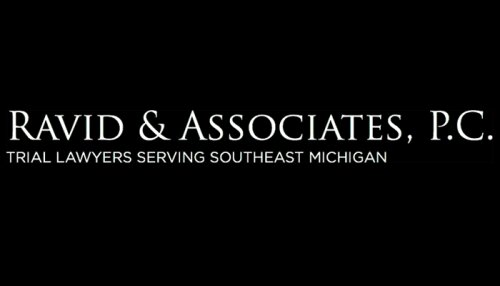Best Premises Liability Lawyers in Southfield
Share your needs with us, get contacted by law firms.
Free. Takes 2 min.
List of the best lawyers in Southfield, United States
About Premises Liability Law in Southfield, United States
Premises liability law in Southfield, United States, refers to the set of legal principles governing the liability of property owners for injuries that occur on their premises. This area of law holds property owners and occupiers responsible for accidents and injuries that occur due to unsafe conditions on their property. In Southfield, as in other parts of Michigan, premises liability cases can arise in various contexts, such as slips and falls, inadequate maintenance, negligent security, and other hazardous conditions that may lead to injuries. Property owners have a duty of care to ensure that their premises are reasonably safe for visitors.
Why You May Need a Lawyer
There are several situations where individuals might need legal assistance with premises liability cases. Common scenarios include:
- Experiencing a slip and fall accident in a store or restaurant due to wet floors or tripping hazards. - Suffering an injury at a friend's house due to unsafe structural elements. - Being involved in an accident at a construction site as a passerby. - Encountering negligent security issues leading to personal harm in places like parking lots or apartment complexes. - Facing challenges in proving that the property owner knew or should have known about the hazardous condition.
An experienced premises liability lawyer can help you navigate these situations by gathering evidence, establishing liability, and ensuring you receive appropriate compensation for your injuries.
Local Laws Overview
In Southfield, premises liability law is shaped largely by Michigan state law. Key aspects include:
- Duty of Care: Property owners have different levels of duty depending on whether the injured party is an invitee, licensee, or trespasser. - Comparative Fault: Michigan follows a comparative fault rule, meaning that if the injured party is partly responsible for the injury, any compensation awarded can be reduced by their percentage of fault. - Statute of Limitations: There is a time limit within which a premises liability lawsuit must be filed, typically three years from the date of the injury. - Open and Obvious Doctrine: Property owners may not be liable for injuries caused by open and obvious hazards that a reasonable person would have avoided.
Frequently Asked Questions
What is the first step to take after being injured on someone else’s property?
The first step is to seek medical attention to address any injuries. Document the scene through photographs and gather contact information from any witnesses. Report the incident to the property owner or manager as soon as possible.
Do I have a viable premises liability claim?
A viable claim generally requires proof that the property owner was negligent in maintaining safe premises, leading to your injury. Consulting a lawyer can help determine the strength of your case.
What kind of compensation can I receive from a premises liability claim?
Compensation may cover medical expenses, lost wages, pain and suffering, and other damages related to the injury. The specific compensation depends on the circumstances and severity of the injuries.
How long do I have to file a premises liability lawsuit in Southfield?
In Southfield, you typically have three years from the date of the injury to file a lawsuit. It’s important to consult a lawyer to ensure compliance with this statute of limitations.
What if I was partly at fault for my injury?
In Michigan, the comparative fault system means your compensation could be reduced by your percentage of fault. A lawyer can help assess fault distribution in your case.
Can a trespasser recover damages in a premises liability case?
Generally, property owners owe minimal duty to trespassers, but there are exceptions, such as when the owner had knowledge of frequent trespassing and failed to maintain safety.
What is the open and obvious doctrine?
This doctrine limits liability for injuries caused by hazards that are open and obvious. If the danger was evident, the property owner might not be held liable.
How is a slip and fall claim proven?
Proving a slip and fall claim typically involves showing the property owner knew or should have known about the dangerous condition, failed to address it, and this led to the injury.
How do I prove the property owner was negligent?
Evidence such as witness statements, surveillance footage, maintenance records, and expert testimony can help demonstrate the property owner's negligence.
What should I avoid doing after a premises liability injury?
Avoid giving detailed statements to insurance adjusters or signing any documents without consulting a lawyer. These actions could jeopardize your claim.
Additional Resources
- Southfield City Government: Provides local ordinances and regulations. - Michigan Department of Licensing and Regulatory Affairs (LARA): Offers consumer protection resources. - State Bar of Michigan: Can assist in finding a qualified premises liability attorney. - Local legal aid organizations: Offer free or reduced-cost legal services for those eligible.
Next Steps
If you believe you have a premises liability case, it is advisable to gather evidence, keep detailed records of your injuries and medical treatments, and contact a local premises liability attorney. A legal professional can provide a thorough review of your case, guide you through the legal process, and help you secure the compensation you deserve. Beginning this process promptly ensures compliance with legal deadlines and a stronger case foundation.
Lawzana helps you find the best lawyers and law firms in Southfield through a curated and pre-screened list of qualified legal professionals. Our platform offers rankings and detailed profiles of attorneys and law firms, allowing you to compare based on practice areas, including Premises Liability, experience, and client feedback.
Each profile includes a description of the firm's areas of practice, client reviews, team members and partners, year of establishment, spoken languages, office locations, contact information, social media presence, and any published articles or resources. Most firms on our platform speak English and are experienced in both local and international legal matters.
Get a quote from top-rated law firms in Southfield, United States — quickly, securely, and without unnecessary hassle.
Disclaimer:
The information provided on this page is for general informational purposes only and does not constitute legal advice. While we strive to ensure the accuracy and relevance of the content, legal information may change over time, and interpretations of the law can vary. You should always consult with a qualified legal professional for advice specific to your situation.
We disclaim all liability for actions taken or not taken based on the content of this page. If you believe any information is incorrect or outdated, please contact us, and we will review and update it where appropriate.











